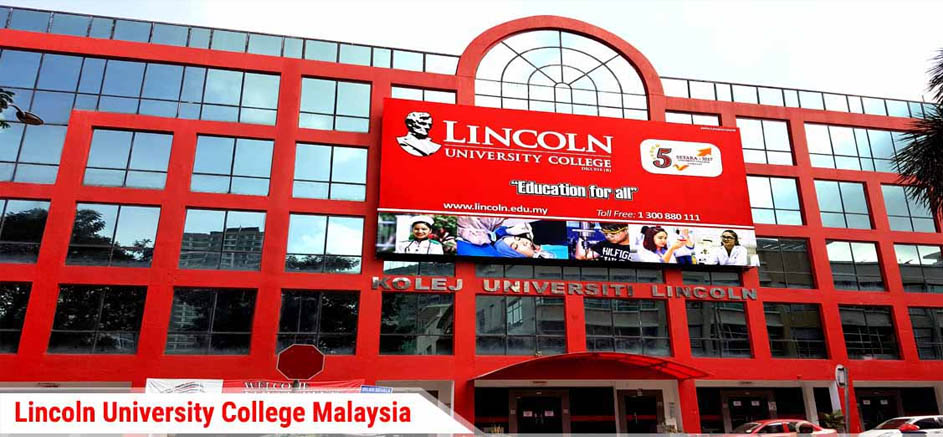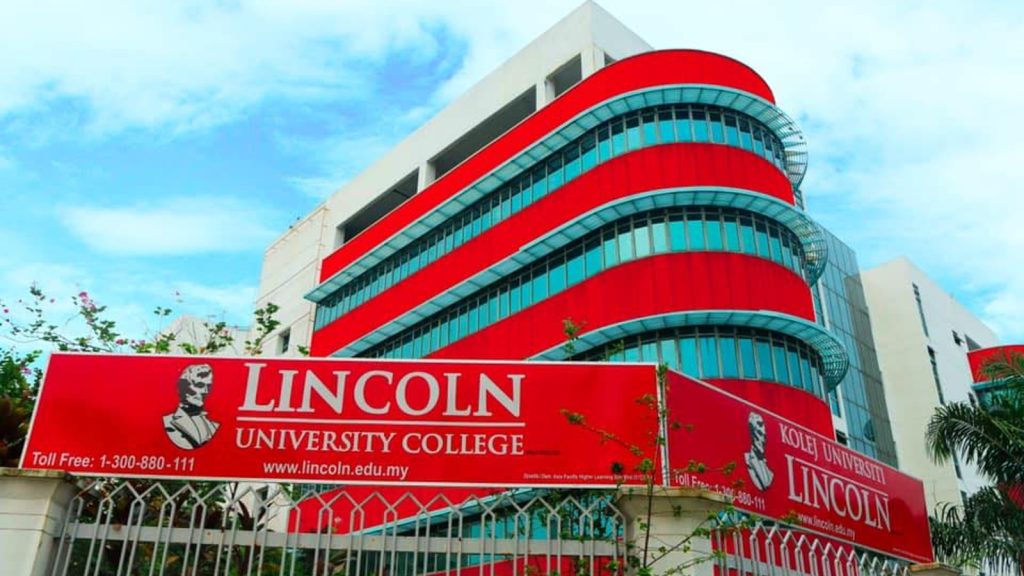Bachelor of Mechanical Engineering Technology (Aeronautics) (Hons) is one of the most challenging fields of engineering with a wide scope for growth. This is a multidisciplinary programme where students are equipped with in depth knowledge of Physics and Mathematics, core skills in mechanical engineering with hands-on aircraft maintenance fundamentals to excel and develop as an aircraft maintenance engineer.
Overview
Bachelor of Mechanical Engineering Technology (Aeronautics) (Hons) is one of the most challenging fields of engineering with a wide scope for growth. This is a multidisciplinary programme where students are equipped with in depth knowledge of Physics and Mathematics, core skills in mechanical engineering with hands-on aircraft maintenance fundamentals to excel and develop as an aircraft maintenance engineer. The program would produce professionals with capacity to invent, to integrate, and to deploy the latest development in Mechanical and Aeronautics Engineering field. During the course students cover core mechanical disciplines including engineering mechanics, thermodynamics and control system while developing skills in project management and public speaking. Bachelor of Mechanical Engineering Technology (Aeronautics) (Honors), Lincoln University College prepare students to be an industry-ready professional engineer capable of applying the principles of technology and science to the design, production and operation of systems, devices and machinery.
Program Aim
Bachelor of Mechanical Engineering Technology (Aeronautics) (Hons) aims to equipped engineering graduates with enhanced knowledge of physics and materials science along with aeronautical engineering to play a leading professional roles in industry and public service
The aims of this programme are:
- To train the students to meet the ever increasing current industrial demand by providing technical knowledge regarding the principles underlying Mechanical Engineering and Aeronautics.
- To Develop expertise in planning, designing, constructing, supervising and managerial skills this is essential for the infrastructure of the modern technological communities.
- To Foster the development of personal qualities and professional competencies required to progress to evaluation as a Mechanical Engineer.
- To provide a relevant and useful programme, that can meet the needs of the individual, containing both theoretical and practical subjects within the broad areas of flight dynamics, structures, aerodynamics, materials, sustainable aviation and aerospace-related systems.
- To equip graduates with a detailed knowledge of advanced methods in aeronautical engineering, including theoretical foundations, computational and experimental methods and engineering applications.
Career Opportunities
Bachelor of Mechanical Engineering Technology (Aeronautics) (Hons) is focused on delivering Mechanical and Aeronautics engineering expertise with a clear focus on the needs of industry and producing graduates who are able to design, operate and manage Mechanical equipments and who can provide leadership in innovation, research and technology transfer. However, being based on a mechanical engineering degree, graduates will retain flexibility in the choice of many industrial sectors including energy engineering, manufacturing, design consultancy, materials processing, and aviation maintenance.
Some careers that graduates can attain once they complete the course are:
- Sustainable Energy Engineer
- Robotics Engineer
- Quality Control Engineer
- Vibrations Engineer
- Aerospace Engineer
- Materials Engineer
- Mechanical Engineer
- Manufacturing Engineer
- Aircraft Engineer
- Noise Control Engineer
- Instrumentation Engineer
- Product engineer
- Design engineer
- Engineer production
- Product innovation
- Manager systems engineer
Subject Highlights
| Sl.No. | MQA Subject Code | Subject Name | Credits |
|---|---|---|---|
| Elective (Choose any one module from the following): | |||
| 1 | MPU 3113 | Islamic Civilization and Asian Civilization | 3 |
| 2 | MPU 3163 | Malay Communication 3 | 3 |
| 3 | BEE 1133 | Thermodynamics | 3 |
| 4 | BEL 1003 | English 1 | 3 |
| Elective (Choose any one module from the following): | |||
| 5 | MPU 3123 | Ethnic Relations | 3 |
| 6 | MPU 3173 | Malaysian Studies 3 | 3 |
| 7 | BEE 6013 | Engineering Mathematics 1 | 3 |
| 8 | BME 1123 | Computer Aided Design (CAD) | 3 |
| 9 | BMA 1213 | Computer Programming | 3 |
| 10 | BME 1223 | Engineering Mechanics | 3 |
| 11 | MPU 3232 | Leadership Skills and Human Relation | 2 |
| 12 | BEE 1233 | Fluid Mechanics | 3 |
| 13 | BME 1323 | Mechanics of Materials | 3 |
| 14 | BME 1313 | Engineering Drawing | 3 |
| 15 | BME 1333 | Engineering Laboratory Year 1 | 3 |
| 16 | BEE 6013 | Measurement and Instrumentation | 3 |
| 17 | BME 2233 | Circuit Theory | 3 |
| 18 | BEE 2133 | Probability and Statistics | 3 |
| 19 | BME 2143 | Computer Aided Design (CAD) 2 | 3 |
| 20 | BEL 3003 | Public Speaking | 3 |
| 21 | MPU 3342 | Malaysian Government and Public Policy | 2 |
| 22 | BEE 6053 | Engineering Mathematics 2 | 3 |
| 23 | BEE 2223 | Control System | 3 |
| 24 | BME 2123 | Electronics | 3 |
| 25 | BEE 6163 | Digital electronics | 3 |
| 26 | MPU 3452 | Community Service | 2 |
| 27 | BEL 2003 | English 2 | 3 |
| 28 | BME 2253 | Engineering Materials and Manufacturing Processes | 3 |
| 29 | BME 2323 | Engineering Laboratory Year 2 | 3 |
| 30 | BME 3113 | Machine Design | 3 |
| 31 | BME 3123 | Mechanics of Machines 1 | 3 |
| 32 | BME 4133 | Finite Element Analysis | 3 |
| 33 | BMA 3113 | Aerodynamics | 3 |
| 34 | BME 3143 | Engineering Thermodynamics and Heat Transfer | 3 |
| 35 | BMA 3223 | Helicopter dynamics | 3 |
| 36 | BMA 3233 | Aircraft systems | 3 |
| 37 | BEE 3323 | Quality management | 3 |
| 38 | BMA 3213 | Aircraft Structural Mechanics | 3 |
| 39 | BEE 4213 | Entrepreneurship Development | 3 |
| 40 | BEE 3213 | Project Management | 3 |
| 41 | BME 3213 | Renewable Energy Processes | 3 |
| 42 | BME 3223 | Human Factors in Design | 3 |
| 43 | BEE 2213 | Electrical Machine | 3 |
| 44 | BMA 3313 | Aircraft Design | 3 |
| 45 | BMA 3323 | Flight Mechanics | 3 |
| 46 | BME 4113 | Mechanical System Design | 3 |
| 47 | BME 3318 | Industrial Training | 6 |
| 48 | BME 4143 | Mechanics of Machines 2 | 3 |
| 49 | BMA 4223 | Engineering Design Optimization | 3 |
| 50 | BME 4153 | Final Year Project 1 | 4 |
| 51 | BMA 4243 | Aircraft Propulsion | 3 |
| 52 | BME 3263 | Engineering Laboratory Year 3 | 3 |
| 53 | BME 4223 | Final Year Project 2 | 4 |
| 54 | BME 4243 | Engineering Laboratory Year 4 | 3 |
Entry Requirements
FAQ
International Student Requirements
Applicants must have passed A-Level or Higher Secondary School (or equivalent) with a minimum Grade C (CGPA 2.0/4.0) in Mathematics and one relevant science subject or hold a recognized Diploma in Engineering, Engineering Technology, or a related Technical/Vocational field with a minimum CGPA of 2.0. APEL A may also be considered as per MQA guidelines. For international equivalency, refer to the MQA’s entry qualifications list.
Local Student Requirements
You must have passed A-Level or STPM (or equivalent) with a minimum Grade C (CGPA 2.0/4.0) in Mathematics and one relevant science subject, or hold a recognized Diploma in Engineering, Engineering Technology, or related Technical/Vocational field with a minimum CGPA of 2.0. APEL A may also be considered as per MQA guidelines. A bridge program is offered at our Foundation Center if you don’t meet these requirements.
English Proficiency
Yes, you need English Proficiency like IELTS 5.0 or TOEFL 500. Lincoln University’s English Center offers an intensive course to help you build the skills needed to pass English proficiency requirements.
Credit Transfer
A maximum of 30% of the total credit can be transferred if the diploma is from the same field, provided there is 80% syllabus mapping, subject mapping, and subject credit mapping, with a minimum grade of C.
Entry Requirements
The minimum percentage required to join the engineering program is 50%. For more details, please refer to our entry requirements.
Work Experience
No, work experience is not required if you pass A-level or Higher Secondary School, or Foundation in Science, with minimum grades C in Math and any science subject.
Alternative Pathways
Yes, you can pursue a degree through the Accreditation of Prior Experiential Learning (APEL) if you lack formal qualifications. No formal education is required for Certificates, Diplomas, and Bachelor’s Degrees but specific qualifications are needed for Master’s and Doctoral Degrees along with passing the APEL assessment.
Age Limit
There is no age limit to study in any engineering program as long as you meet the entry requirements. However, if applying through APEL, there are specific age requirements: Bachelor’s Degree requires 21 years old and above.
Application Documents
You need to submit an original scan copy and a certified true copy of your academic transcripts and certificates along with an English translation if it is in another language.
Application
Yes, you can apply as long as you have passed Mathematics and one science subject. The Faculty of Engineering provides one-on-one tutoring and support, especially for those who may have a weaker background in math and science.
Graduation Status
No, since our programmes are Engineering Technology programmes, upon graduation you will be called an Engineering Technologist.
Industrial Training
Yes, we provide assistance to students for their industrial training or on-the-job training.
Program Duration
At the Faculty of Engineering, the duration is 4 years for a Bachelor programme. Our faculty maintains a 99% graduate-on-time rate.
Graduation Requirements
Students are required to complete a minimum of 140 credit hours to graduate from the Bachelor program.
Class Size
Classes typically have around 20 students, promoting an interactive learning environment. We maintain a 1:25 lecturer-to-student ratio to ensure quality education and personalized attention.
Timetable
The timetable is usually provided four weeks ahead of the start of the semester. Students can view their timetable through the LLS student portal.














